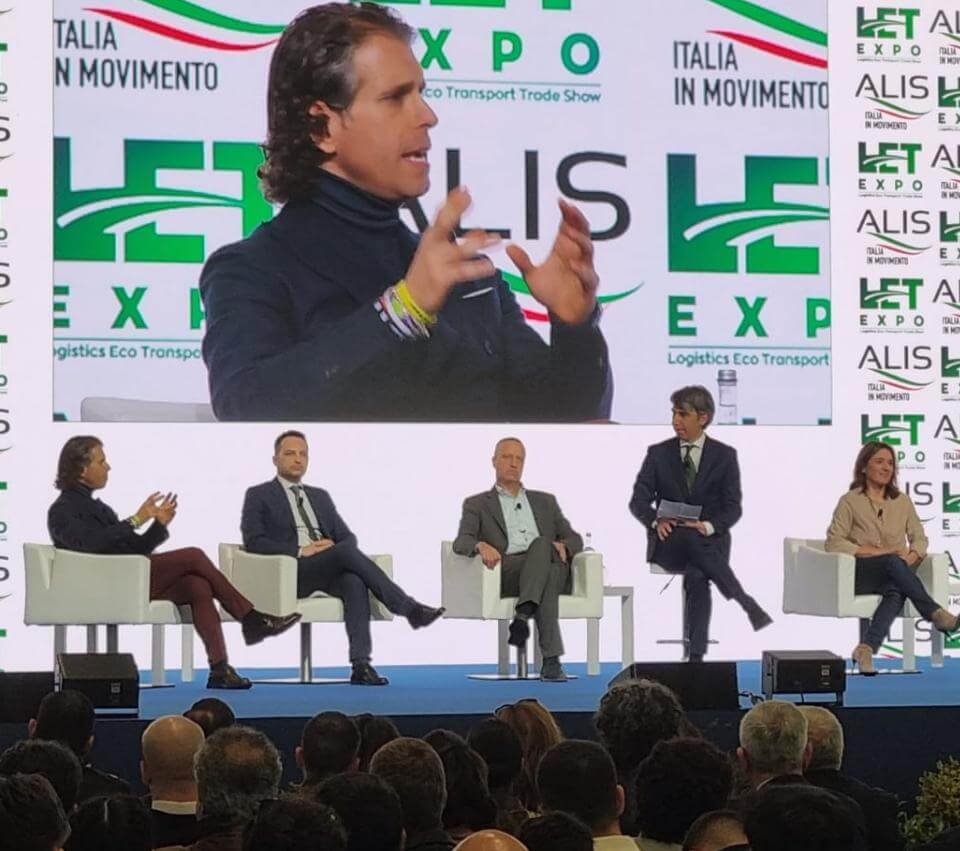
De Rosa (SMET) at LetExpo in Verona: ” We need a serious industrial plan that protects the climate, the economy and jobs.”
“The concepts of energy transition and green economy have become just warhorses to bring, forward at the planetary level, a new industrial revolution.”
The alarm comes from Domenico De Rosa, CEO of SMET, a leading transportation and logistics group. De Rosa spoke at one of the most important conferences on sustainable logistics: the LetExpo in Verona (being held March 12-15), organized by ALIS (Sustainable Intermodal Logistics Association) chaired by Guido Grimaldi. The event was attended by some of the highest government officials, including Minister of Infrastructure and Transport Matteo Salvini. Also present were the mayor of Verona himself, Damiano Tommasi, and the president of the Veneto region, Luca Zaia.
In the focus on green&blue economy, the entrepreneur from Salerno was able to give his contribution to the discussion, in a panel discussion attended by, among others, Vice President of the Transport Commission at the Chamber of Deputies Flavio Tosi. Also with them were Vincenzo Garofalo (President AdSP Mare Adriatico Centrale), Brigida Morsellino (Vice-President ITS Catania and President RESIL network), Alessia Rotta (Vice-President A22 Autostrada del Brennero, and Valerio Vanacore (IVECO Alternative Traction Manager for the Italian market).
At the panel on the green&blue economy (moderated by journalist Nicola Capuzzo), SMET’s number one commented on the risky policy of focusing all – or almost all – on electric and transition, without thinking about an organic plan that would give companies time to adapt and avoid economic and production shocks: “Europe has decided to run for first in its class, in my opinion very lightly, by marking out very tight timetables for the stages of continental decarbonization. The real risk is to hand over our huge and rich market to other economies, such as China, for example.”
SMET CEO criticized the ideology that favors electric at the expense of other technologies: “Continuing to regulate everything in an ideological direction that has nothing to do with the fundamental protection of the climate and the earth is really not understandable,” the entrepreneur argued. It is not acceptable to ban by decree all traction for the sole benefit of electric traction. It is madness, and those who helped elect this scenario as the only one possible will answer for it.”
To the criticism, De Rosa accompanies a constructive proposal, proposing a gradual and inclusive transition model. “We think that the way has to be another way,” the SMET CEO says, “and that above all, at a time of change, we need to take advantage of all possible technologies that gradually improve the general conditions of pollution and, above all, remain sustainable for citizens and businesses.”
In his speech at LetExpo in Verona, De Rosa wanted to emphasize that the goal of zero emissions in the transport sector is achievable, but not with unrealistic deadlines. “We need a serious industrial plan that protects the climate, the economy, and employment,” De Rosa stressed.


